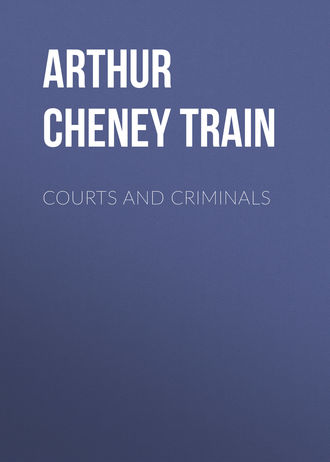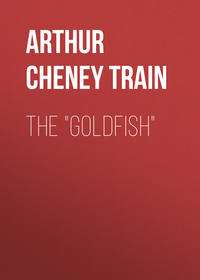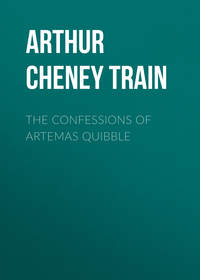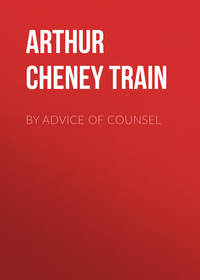 полная версия
полная версияCourts and Criminals
In the more important cases the accused is usually put through some sort of an inquisitorial process by the captain at the station-house. If he is not very successful at getting anything out of the prisoner the latter is turned over to the sergeant and a couple of officers who can use methods of a more urgent character. If the prisoner is arrested by headquarters detectives, various efficient devices to compel him to "give up what he knows" may be used—such as depriving him of food and sleep, placing him in a cell with a "stool pigeon" who will try to worm a confession out of him, and the usual moral suasion of a heart-to-heart talk in the back room with the inspector.
This is the darker side of the picture of practical government. It is needless to say that the police do not always suggest the various safeguards and privileges which the law accords to defendants thus arrested, but the writer is free to confess that, save in exceptional cases, he believes the rigors of the so-called third degree to be greatly exaggerated. Frequently in dealing with rough men rough methods are used, but considering the multitude of offenders, and the thousands of police officers, none of whom have been trained in a school of gentleness, it is surprising that severer treatment is not generally met with on the part of those who run afoul of the criminal law. The ordinary "cop" tries to do his duty as effectively as he can. With the average citizen gruffness and roughness go a long way in the assertion of authority. In the task of policing a big city, the rights of the individual must indubitably suffer to a certain extent if the rights of the multitude are to be properly protected. We can make too much of small injustices and petty incivilities. Police business is not gentle business. The officers are trying to prevent you and me from being knocked on the head some dark night or from being chloroformed in our beds. Ten thousand men are trying to do a thirty-thousand-man job. The struggle to keep the peace and put down crime is a hard one anywhere. It requires a strong arm that cannot show too punctilious a regard for theoretical rights when prompt decisions have to be made and equally prompt action taken. The thieves and gun men have got to be driven out. Suspicious characters have got to be locked up. Somehow or other a record must be kept of professional criminals and persons likely to be active in law-breaking. These are necessities in every civilized country. They are necessities here. Society employs the same methods of self-protection the world over. No one presumes a person charged with crime to be innocent, either in Delhi, Pekin, Moscow, or New York. Under proper circumstances we believe him guilty. When he comes to be tried the jury consider the evidence, and if they are reasonably sure he is guilty they convict him. The doctrine of reasonable doubt is almost as much of a fiction as that of the presumption of innocence. From the time a man is arrested until arraignment he is quizzed with a view to inducing him to admit his offence or give some evidence that may help convict him. Logically, why should not a person charged with a crime be obliged to give what explanation he can of the affair? Why should he have the privilege of silence? Doesn't he owe a duty to the public the same as any other witness? If he is innocent he has nothing to fear; if he is guilty—away with him! The French have no false ideas about such things and at the same time they have a high regard for liberty. We merely cheat ourselves into thinking that our liberty is something different from French liberty because we have a lot of laws upon our statute books that are there only to be disregarded and would have to be repealed instantly if enforced.
Take, for instance, the celebrated provision of the penal laws that the failure of an accused to testify in his own behalf shall not be taken against him. Such a doctrine flies in the face of human nature. If a man sits silent when witnesses under oath accuse him of a crime it is an inevitable inference that he has nothing to say—that no explanation of his would explain. The records show that the vast majority of accused persons who do not avail themselves of the opportunity to testify are convicted. Thus, the law which permits a defendant to testify in reality compels him to testify, and a much-invoked safeguard of liberty turns out to be a privilege in name only. In France or America alike a man accused of crime sooner or later has to tell what he knows—or take his medicine. It makes little difference whether he does so under the legalized interrogation of a "juge d'instruction" in Paris or under the quasi-voluntary examination of an assistant district attorney or police inspector in New York. It is six of one and half a dozen of the other if at his trial in France he remains mute under examination or in America refrains from availing himself of the privilege of testifying in his own behalf.
Thus, we are reluctantly forced to the conclusion that all human institutions have their limitations, and that, however theoretically perfect a government of laws may be, it must be administered by men whose chief regard will not be the idealization of a theory of liberty so much as an immediate solution of some concrete problem.
Not that the matter, after all, is particularly important to most of us, but laws which exist only to be broken create a disrespect and disregard for law which may ultimately be dangerous. It would be perfectly simple for the legislature to say that a citizen might be arrested under circumstances tending to create a reasonable suspicion, even if he had not committed a crime, and it would be quite easy to pass a statute providing that the commissioner of police might "mug" and measure all criminals immediately after conviction. As it is, the prison authorities won't let him, so he has to do it while he has the opportunity.
It must be admitted that this is rather hard on the innocent, but they now have to suffer with the guilty for the sins of an indolent and uninterested legislature. Moreover, if such a right of arrest were proposed, some wiseacre or politician would probably rise up and denounce the suggestion as the first step in the direction of a military dictatorship. Thus, we shall undoubtedly fare happily on in the blissful belief that our personal liberties are the subject of the most solicitous and zealous care on the part of the authorities, guaranteed to us under a government which is not of men but of laws, until one of us happens to be arrested (by mistake, of course) and learns by sad experience the practical methods of the police in dealing with criminals and the agreeable but deceptive character of the pleasant fiction of the presumption of innocence.
CHAPTER II. Preparing a Criminal Case for Trial
When the prosecuting attorney in a great criminal trial arises to open the case to the impanelled jury, very few, if any, of them have the slightest conception of the enormous expenditure of time, thought and labor which has gone into the preparation of the case and made possible his brief and easily delivered speech. For in this opening address of his there must be no flaw, since a single misstated or overstated fact may prejudice the jury against him and result in his defeat. Upon it also depends the jury's first impression of the case and of the prosecutor himself—no inconsiderable factor in the result. In a trial of importance its careful construction with due regard to what facts shall be omitted (in order to enhance their dramatic effect when ultimately proven) may well occupy the district attorney every evening for a week. But if the speech itself has involved study and travail, it is as nothing compared with the amount required by that most important feature of every criminal case—the selection of the jury.
For a month before the trial, or whenever it may be that the jury has been drawn, every member upon the panel has been subjected to an unseen scrutiny. The prosecutor, through his own or through hired sleuths, has examined into the family history, the business standing and methods, the financial responsibility, the political and social affiliations, and the personal habits and "past performances" of each and every talesman. When at the beginning of the trial they, one by one, take the witness-chair (on what is called the voir dire) to subject themselves to an examination by both sides as to their fitness to serve as jurors in the case, the district attorney probably has close fit hand a rather detailed account of each, and perchance has great difficulty in restraining a smile. When some prospective juror, in his eagerness either to serve or to escape, deliberately equivocates in answer to an important question as to his personal history.
"Are you acquainted with the accused or his family?" mildly inquires the assistant prosecutor. "No—not at all," the talesman may blandly reply.
The answer, perhaps, is literally true, and yet the prosecutor may be pardoned for murmuring.
"Liar!" to himself as he sees that his memorandum concerning the juror's qualifications states that he belongs to the same "lodge" with the prisoner's uncle by marriage and carries an open account on his books with the defendant's father.
"I think we will excuse Mr. Ananias," politely remarks the prosecutor; then in an undertone he turns to his chief and mutters: "The old rascal! He would have knifed us if we'd given him the chance!" And all this time the disgruntled Mr. Ananias is wondering why, if he didn't "know the defendant or his family," he was not accepted as a juror.
Of course, every district attorney has, or should have, information as to each talesman's actual capabilities as a juror and something of a record as to how he has acted under fire. If he is a member of the "special" panel, it is easy to find out whether he has ever acquitted or convicted in any cause celebre, and if he has acquitted any plainly guilty defendant in the past it is not likely that his services will be required. If, however, he has convicted in such a case the district attorney may try to lure the other side into accepting him by making it appear that he himself is doubtful as to the juror's desirability. Sometimes persons accused of crime themselves, and actually under indictment, find their way onto the panels, and more than one ex-convict has appeared there in some inexplicable fashion. But to find them out may well require a double shift of men working day and night for a month before the case is called, and what may appear to be the most trivial fact thus discovered may in the end prove the decisive argument for or against accepting the juror.
Panel after panel may be exhausted before a jury in a great murder trial has been selected, for each side in addition to its challenges for "cause" or "bias" has thirty1 peremptory ones which it may exercise arbitrarily. If the writer's recollection is not at fault, the large original panel drawn in the first Molineux trial was used up and several others had to be drawn until eight hundred talesmen had been interrogated before the jury was finally selected. It is usual to examine at least fifty in the ordinary murder case before a jury is secured.
It may seem to the reader that this scrutiny of talesmen is not strictly preparation for the trial, but, in fact, it is fully as important as getting ready the facts themselves; for a poor jury, either from ignorance or prejudice, will acquit on the same facts which will lead a sound jury to convict. A famous prosecutor used to say, "Get your jury—the case will take care of itself."
But as the examination of the panel and the opening address come last in point of chronology it will be well to begin at the beginning and see what the labors of the prosecutor are in the initial stages of preparation. Let us take, for example, some notorious case, where an unfortunate victim has died from the effects of a poisoned pill or draught of medicine, or has been found dead in his room with a revolver bullet in his heart. Some time before the matter has come into the hands of the prosecutor, the press and the police have generally been doing more or less (usually less) effective work upon the case. The yellow journals have evolved some theory of who is the culprit and have loosed their respective reporters and "special criminologists" upon him. Each has its own idea and its own methods—often unscrupulous. And each has its own particular victim upon whom it intends to fasten the blame. Heaven save his reputation! Many an innocent man has been ruined for life through the efforts of a newspaper "to make a case," and, of course, the same thing, though happily in a lesser degree, is true of the police and of some prosecutors as well.
In every great criminal case there are always four different and frequently antagonistic elements engaged in the work of detection and prosecution—first, the police; second, the district attorney; third, the press; and, lastly, the personal friends and family of the deceased or injured party. Each for its own ends—be it professional pride, personal glorification, hard cash, or revenge—is equally anxious to find the evidence and establish a case. Of course, the police are the first ones notified of the commission of a crime, but as it is now almost universally their duty to inform at once the coroner and also the district attorney thereof, a tripartite race for glory frequently results which adds nothing to the dignity of the administration of criminal justice.
The coroner is at best no more than an appendix to the legal anatomy, and frequently he is a disease. The spectacle of a medical man of small learning and less English trying to preside over a court of first instance is enough to make the accused himself chuckle for joy.
Not long ago the coroners of New York discovered that, owing to the fact that the district attorney or his representatives generally arrived first at the scene of any crime, there was nothing left for the "medicos" to do, for the district attorney would thereupon submit the matter at once to the grand jury instead of going through the formality of a hearing in the coroner's court. The legal medicine men felt aggrieved, and determined to be such early birds that no worm should escape them. Accordingly, the next time one of them was notified of a homicide he raced his horse down Madison Avenue at such speed that he collided with a trolley car and broke his leg.
Another complained to the district attorney that the assistants of the latter, who had arrived at the scene of an asphyxiation before him, had bungled everything.
"Ach, dose young men!" he exclaimed, wringing his hands—"Dose young men, dey come here and dey opened der vindow and let out der gas and all mine evidence esgaped."
It is said that this interesting personage once instructed his jury to find that "the diseased came to his death from an ulster on the stomach."
These anecdotes are, perhaps, what judges would call obiter dicta, yet the coroner's court has more than once been utilized as a field in the actual preparation of a criminal case. When Roland B. Molineux was first suspected of having caused the death of Mrs. Adams by sending the famous poisoned package of patent medicine to Harry Cornish through the mails, the assistant district attorney summoned him as a witness to the coroner's court and attempted to get from him in this way a statement which Molineux would otherwise have refused to make.
When all the first hullabaloo is over and the accused is under arrest and safely locked up, it is usually found that the police have merely run down the obvious witnesses and made a prima facie case. All the finer work remains to be done either by the district attorney himself or by the detective bureau working under his immediate direction or in harmony with him. Little order has been observed in the securing of evidence. Every one is a fish who runs into the net of the police, and all is grist that comes to their mill. The district attorney sends for the officers who have worked upon the case and for the captain or inspector who has directed their efforts, takes all the papers and tabulates all their information. His practiced eye shows him at once that a large part is valueless, much is contradictory, and all needs careful elaboration. A winnowing process occurs then and there; and the officers probably receive a "special detail" from headquarters and thereafter take their orders from the prosecutor himself. The detective bureau is called in and arrangements made for the running down of particular clues. Then he will take off his coat, clear his desk, and get down to work.
Of course, his first step is to get all the information he can as to the actual facts surrounding the crime itself. He immediately subpoenas all the witnesses, whether previously interrogated by the police or not, who know anything about the matter, and subjects them to a rigorous cross-examination. Then he sends for the police themselves and cross-examines them. If it appears that any witnesses have disappeared he instructs his detectives how and where to look for them. Often this becomes in the end the most important element in the preparation for the trial. Thus in the Nan Patterson case the search for and ultimate discovery of Mr. and Mrs. Morgan Smith (the sister and brother-in-law of the accused) was one of its most dramatic features. After they had been found it was necessary to indict and then to extradite them in order to secure their presence within the jurisdiction, and when all this had been accomplished it proved practically valueless.
It frequently happens that an entire case will rest upon the testimony of a single witness whose absence from the jurisdiction would prevent the trial. An instance of such a case was that of Albert T. Patrick, for without the testimony of his alleged accomplice—the valet, Jones—he could not have been convicted of murder. The preservation of such a witness and his testimony thus becomes of paramount importance, and rascally witnesses sometimes enjoy considerable ease, if not luxury, at the expense of the public while waiting to testify. Often, too, a case of great interest will arise where the question of the guilt of the accused turns upon the evidence of some one person who, either from mercenary motives or because of "blood and affection," is unwilling to come to the fore and tell the truth. A striking case of this sort occurred some ten years ago. The "black sheep" of a prominent New York family forged the name of his sister to a draft for thirty thousand dollars. This sister, who was an elderly woman of the highest character and refinement, did not care to pocket the loss herself and declined to have the draft debited to her account at the bank. A lawsuit followed, in which the sister swore that the name signed to the draft was not in her handwriting. She won her case, but some officious person laid the matter before the district attorney. The forger was arrested and his sister was summoned before the grand jury. Here was a pleasant predicament. If she testified for the State her brother would undoubtedly go to prison for many years, to say nothing of the notoriety for the entire family which so sensational a case would occasion. She, therefore, slipped out of the city and sailed for Europe the night before she was to appear before the grand jury. Her brother was in due course indicted and held for trial in large bail, but there was and is no prospect of convicting him for his crime so long as his sister remains in the voluntary exile to which she has subjected herself. She can never return to New York to live unless something happens either to the indictment or her brother, neither of which events seems likely in the immediate future.
Perhaps, if the case is one of shooting, the weapon has vanished. Its discovery may lead to the finding of the murderer. In one instance where a body was found in the woods with a bullet through the heart, there was nothing to indicate who had committed the crime. The only scintilla of evidence was an exploded cartridge—a small thing on which to build a case. But the district attorney had the hammer marks upon the cap magnified several hundred times and then set out to find the rifle which bore the hammer which had made them. Thousands of rifles all over the State were examined. At last in a remote lumber camp was found the weapon which had fired the fatal bullet. The owner was arrested, accused of the murder, and confessed his crime. In like manner, if it becomes necessary to determine where a typewritten document was prepared the letters may be magnified, and by examining the ribbons of suspected machines the desired fact may be ascertained. The magnifying glass still plays an important part in detecting crime, although usually in ways little suspected by the general public.
On the other hand, where the weapon has not been spirited away the detectives may spend weeks in discovering when and where it was purchased. Every pawnshop, every store where a pistol could be bought, is investigated, and under proper circumstances the requisite evidence to show deliberation and premeditation may be secured.
These investigations are naturally conducted at the very outset of the preparation of the case.
The weapon, in seven trials out of ten, is the most important thing in it. By its means it can generally be demonstrated whether the shooting was accidental or intentional—and whether or not the killing was in self-defence.
Where this last plea is interposed it is usually made at once upon the arrest, the accused explaining to the police that he fired only to save his own life. In such a situation, where the killing is admitted, practically the entire preparation will centre upon the most minute tests to determine whether or not the shot was fired as the accused claims that it was. The writer can recall at least a dozen cases in his own experience where the story of the defendant, that the revolver was discharged in a hand-to-hand struggle, was conclusively disproved by experimenting with the weapon before the trial. There was one homicide in which a bullet perforated a felt cap and penetrated the forehead of the deceased. The defendant asserted that he was within three feet of his victim when he fired, and that the other was about to strike him with a bludgeon. A quantity of felt, of weight similar to that of the cap, was procured and the revolver discharged at it from varying distances. A microscopic examination showed that certain discolorations around the bullet-hole (claimed by the defence to be burns made by the powder) were, in fact, grease marks, and that the shot must have been fired from a distance of about fifteen feet. The defendant was convicted on his own story, supplemented by the evidence of the witness who made the tests.
The most obvious and first requirement is, as has been said, to find the direct witnesses to the facts surrounding the crime, commit their statements under oath to writing, so that they cannot later be denied or evaded, and make sure that these witnesses will not only hold no intercourse with the other side, but will be on hand when wanted. This last is not always an easy task, and various expedients often have to be resorted to, such as placing hostile witnesses under police surveillance, or in some cases in "houses of detention," and hiding others in out-of-the-way places, or supplying them with a bodyguard if violence is to be anticipated. When the proper time comes the favorable witnesses must be duly drilled or coached, which does not imply anything improper, but means merely that they must be instructed how to deliver their testimony, what answers are expected to certain questions, and what facts it is intended to elicit from them. Witnesses are often offended and run amuck because they are not given a chance upon the stand to tell the story of their lives. This must be guarded against and steps taken to have their statements given in such a way that they are audible and intelligible. A few lessons in elementary elocution are generally vitally necessary. The man with the bassoon voice must be tamed, and the birdlike old lady made to chirp more loudly. But all this is the self-evident preparation which must take place in every case, and while highly important is of far less interest than the development of the circumstantial evidence which is the next consideration of the district attorney.
The discovery and proper proof of minute facts which tend to demonstrate the guilt of an accused are the joy of the natural prosecutor, and he may in his enthusiasm spend many thousands of dollars on what seems, and often is, an immaterial matter. Youthful officials intrusted with the preparation of important cases often become unduly excited and forget that the taxpayers are paying the bills. The writer remembers sitting beside one of these enthusiasts during a celebrated trial. A certain woman witness had incidentally testified to a remote meeting with the deceased at which a certain other woman was alleged to have been present. The matter did not seem of much interest or importance, but the youth in question seized a yellow pad and excitedly wrote in blue pencil, "Find Birdie" (the other lady) "at any cost!" This he handed to a detective, who hastened importantly away. It is to be hoped that "Birdie" was found speedily and in an inexpensive manner.





